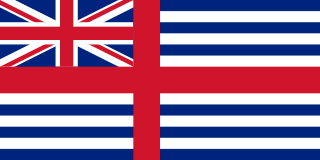
Van Diemen's Land was the colonial name of the island of Tasmania used by the British during the European exploration and colonisation of Australia in the 19th century. The island was previously discovered and named by the Dutch in 1642. Explorer Abel Tasman discovered the island, working under the sponsorship of Anthony van Diemen, the Governor-General of the Dutch East Indies. The British retained the name when they established a settlement in 1803 before it became a separate colony in 1825. Its penal colonies became notorious destinations for the transportation of convicts due to the harsh environment, isolation and reputation for being inescapable.

Bushrangers were armed robbers who hid from authorities in the bush of the British colonies in Australia. The earliest use of the term applied to escaped convicts in the early years of the British settlements in Australia. By the 1820s, the term had evolved to refer to those who took up "robbery under arms" as a way of life, using bases in the bush.

The First Fleet was a fleet of 11 British ships that took the first British colonists and convicts to Australia. It comprised two Royal Navy vessels, three store ships and six convict transports. On 13 May 1787 the fleet under the command of Captain Arthur Phillip, with over 1,400 people, left from Portsmouth, England and took a journey of over 24,000 kilometres (15,000 mi) and over 250 days to eventually arrive in Botany Bay, New South Wales, where a penal colony would become the first British settlement in Australia from 20 January 1788.
In law, a conviction is the determination by a court of law that a defendant is guilty of a crime. A conviction may follow a guilty plea that is accepted by the court, a jury trial in which a verdict of guilty is delivered, or a trial by judge in which the defendant is found guilty.

A penal colony or exile colony is a settlement used to exile prisoners and separate them from the general population by placing them in a remote location, often an island or distant colonial territory. Although the term can be used to refer to a correctional facility located in a remote location, it is more commonly used to refer to communities of prisoners overseen by wardens or governors having absolute authority.
Life imprisonment is any sentence of imprisonment for a crime under which the convicted criminal is to remain in prison for the rest of their natural life. Crimes that warrant life imprisonment are extremely serious and usually violent. Examples of these crimes are murder, torture, terrorism, child abuse resulting in death, rape, espionage, treason, illegal drug trade, human trafficking, severe fraud and financial crimes, aggravated property damage, arson, hate crime, kidnapping, burglary, robbery, theft, piracy, aircraft hijacking, and genocide.
A convict is "a person found guilty of a crime and sentenced by a court" or "a person serving a sentence in prison". Convicts are often also known as "prisoners" or "inmates" or by the slang term "con", while a common label for former convicts, especially those recently released from prison, is "ex-con" ("ex-convict"). Persons convicted and sentenced to non-custodial sentences tend not to be described as "convicts".

Penal transportation was the relocation of convicted criminals, or other persons regarded as undesirable, to a distant place, often a colony, for a specified term; later, specifically established penal colonies became their destination. While the prisoners may have been released once the sentences were served, they generally did not have the resources to return home.

Port Arthur is a town and former convict settlement on the Tasman Peninsula, in Tasmania, Australia. It is located approximately 97 kilometres (60 mi) southeast of the state capital, Hobart.
A pardon is a government decision to allow a person to be relieved of some or all of the legal consequences resulting from a criminal conviction. A pardon may be granted before or after conviction for the crime, depending on the laws of the jurisdiction.

San Quentin Rehabilitation Center (SQ), formerly known as San Quentin State Prison, is a California Department of Corrections and Rehabilitation state prison for men, located north of San Francisco in the unincorporated place of San Quentin in Marin County.
Trial in absentia is a criminal proceeding in a court of law in which the person being tried is not present. In absentia is Latin for "in (the) absence". Its interpretation varies by jurisdiction and legal system.
The history of Australia from 1788 to 1850 covers the early British colonial period of Australia's history. This started with the arrival in 1788 of the First Fleet of British ships at Port Jackson on the lands of the Eora, and the establishment of the penal colony of New South Wales as part of the British Empire. It further covers the European scientific exploration of the continent and the establishment of the other Australian colonies that make up the modern states of Australia.
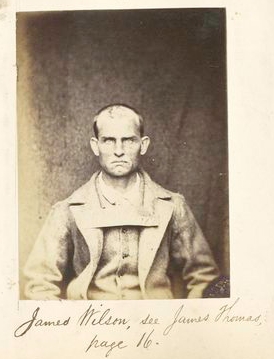
The convict era of Western Australia was the period during which Western Australia was a penal colony of the British Empire. Although it received small numbers of juvenile offenders from 1842, it was not formally constituted as a penal colony until 1849. Between 1850 and 1868, 9,721 convicts were transported to Western Australia on 43 convict ship voyages. Transportation ceased in 1868, at which time convicts outnumbered free settlers 9,700 to 7,300, and it was many years until the colony ceased to have any convicts in its care.
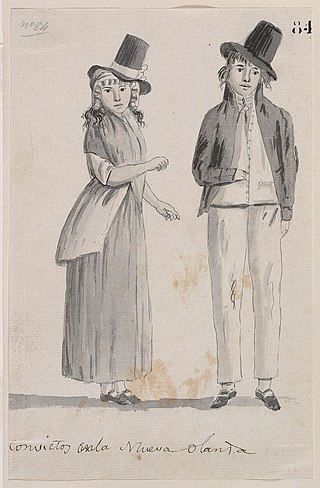
Between 1788 and 1868 the British penal system transported about 162,000 convicts from Great Britain and Ireland to various penal colonies in Australia.

Convict leasing was a system of forced penal labor that was practiced historically in the Southern United States, the laborers being mainly African-American men; it was ended during the 20th century. It provided prisoner labor to private parties, such as plantation owners and corporations.
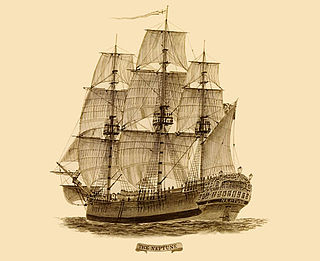
A convict ship was any ship engaged on a voyage to carry convicted felons under sentence of penal transportation from their place of conviction to their place of exile.
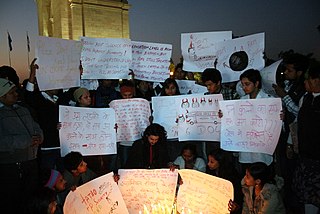
The 2012 Delhi gang rape and murder, commonly known as the Nirbhaya case, involved a rape and fatal assault that occurred on 16 December 2012 in Munirka, a neighbourhood in South Delhi. The incident took place when Jyoti Singh, a 22-year-old physiotherapy intern, was beaten, gang-raped, and tortured in a private bus in which she was travelling with her male friend, Avnindra Pratap Pandey. There were six others in the bus, including the driver, all of whom raped the woman and beat her friend. She was rushed to Safdarjung Hospital in Delhi for treatment and, as the public outrage mounted, the government had her transferred to the prestigious Mount Elizabeth hospital, Singapore eleven days after the assault, where she succumbed to her injuries two days later. The incident generated widespread national and international coverage and was widely condemned, both in India and abroad. Subsequently, public protests against the state and central governments for failing to provide adequate security for women took place in New Delhi, where thousands of protesters clashed with security forces. Similar protests took place in major cities throughout the country. Since Indian law does not allow the press to publish a rape victim's name, the victim was widely known as Nirbhaya, meaning "fearless", and her struggle and death became a symbol of women's resistance to rape around the world.











